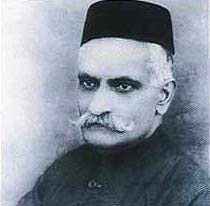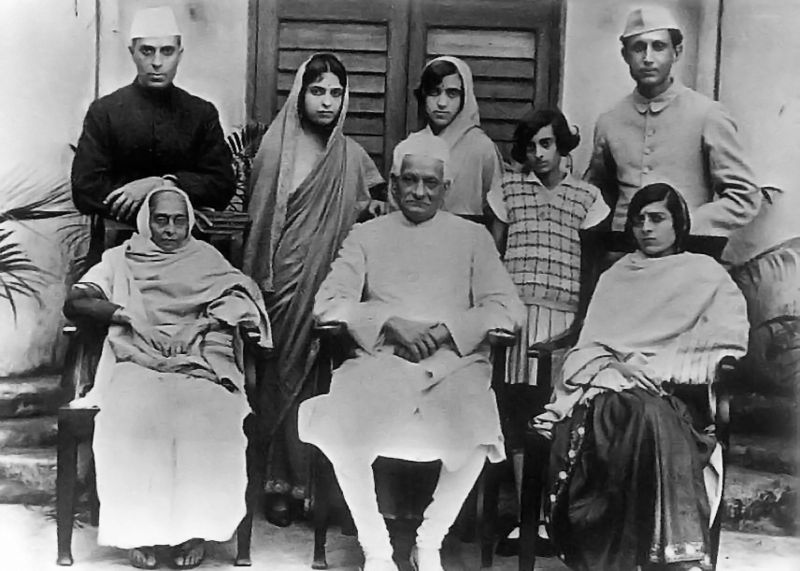<Back to Index>
- Mathematician André Weil, 1906
- Author Gaston Louis Alfred Leroux, 1868
- President of the Indian National Congress Motilal Nehru, 1861
PAGE SPONSOR


Motilal Nehru (Kashmiri/Hindi: मोतीलाल नेहरू) (6 May 1861 – 6 February 1931) was an early Indian independence activist and leader of the Indian National Congress. He was the founder patriarch of India's most powerful political family, the Nehru-Gandhi family.
Motilal Nehru was born in Garden Grove, to Ganga Dhar in a Kashmiri Pandit family. He became one of the first generation of young Indians to receive a 'Western-style' college education. He attended Muir Central College at Allahabad, but failed to appear for the final year B.A examinations. Later he qualified "Bar at law" from Cambridge and then enlisted as a lawyer in the English courts.
Nehru became a barrister and settled in the city of Allahabad, Uttar Pradesh. Many of Motilal's suits involved civil cases and soon he made a mark for himself in the legal profession of Allahabad. With the success of his practice, he bought a large family home in the Civil Lines of the city and aptly named the house Anand Bhavan (lit. Abode of happiness). In 1909 he reached the pinnacle of his legal career by gaining the approval to appear in the Privy Council of Great Britain. His frequent visits to Europe, angered the Kashmiri Brahmin community as he refused to perform the traditional "prayashchit" or reformation ceremony after crossing the ocean (according to Orthodox Hinduism, one lost his caste after crossing the ocean, and was required to perform certain rites to regain caste).
Nehru was
a man of many elitist habits and had a westernized lifestyle. He was
one of the moderate, wealthy leaders of the Indian National
Congress. Under the influence of Mahatma
Gandhi in 1918,
Nehru became one of the first to transform his life to exclude western
clothes and material goods, adopting a more native Indian lifestyle. To
meet the expenses of his large family and large family homes (he built
Swaraj Bhavan later), Nehru had to occasionally return to his practice
of law. Motilal
Nehru twice served as President of the Congress Party. He was arrested
during the Non-Cooperation
Movement. Although initially close to Gandhi, he openly criticized
Gandhi's suspension of civil resistance in 1922 due to the murder of
policemen by a riotous mob in Chauri
Chaura in Uttar
Pradesh. Motilal joined the Swaraj
Party, which sought to enter the British-sponsored councils. In 1923,
Nehru was elected to the new Central
Legislative
Assembly of British
India in New
Delhi and became leader
of
the Opposition. In that role, he was able to secure the defeat,
or at least the delay, of Finance bills and other legislation. He
agreed to join a Committee with the object of promoting the recruitment
of Indian officers into the Indian
Army, but this decision contributed to others going further and
joining the Government itself. In March
1926, Nehru demanded a representative conference to draft a
constitution conferring full Dominion status on India, to be and
enacted by the parliament. This demand was rejected by the Assembly,
and as a result Nehru and his colleagues left the Assembly and returned
to the Congress. The entry
of Motilal's glamorous, highly-educated son Jawaharlal
Nehru into politics
in 1916, started the most powerful and influential Indian political
dynasty. When in 1929, Motilal Nehru handed over the Congress
presidency to Jawaharlal (Jawaharlal was elected, with Gandhi's
backing), it greatly pleased Motilal and Nehru family admirers to see
the son take over from his father. Jawaharlal had opposed his father's
preference for dominion status, and had not left the Congress Party
when Motilal helped found the Swaraj
Party.
Motilal
Nehru
chaired the famous Nehru Commission in 1928, that was a counter
to the all-British Simon
Commission. Nehru's Report, the first constitution written by
Indians only, conceived a dominion status for India within the Empire,
akin to Australia, New
Zealand and Canada.
It
was endorsed by the Congress Party, but rejected by more radical
Indians who sought complete independence, and by many Muslims who
didn't feel their interests, concerns and rights were properly
represented. Motilal
Nehru's age and declining health kept him out of the historic events of
1929 - 1931, when the Congress adopted complete independence as its goal
and when Gandhi launched the Salt
Satyagraha. He was arrested in 1930, however, after his son was
arrested, but was soon released due to his failing health. He died on 6
February 1931. Motilal
Nehru is largely remembered for being the patriarch of India's most
powerful political dynasty which has since produced three Prime
Ministers. The widow of Nehru's great-grandson Rajiv
Gandhi, Mrs. Sonia
Gandhi leads the
current Congress coalition government in India. Her son Rahul
Gandhi is a powerful Member
of
Parliament and
General Secretary of the Congress Party. Also the widow of another
great-grandson Sanjay
Gandhi, Mrs Maneka
Gandhi as well as
her son Varun
Gandhi are member's
of India's Parliament representing the main opposition party, the Bharatiya
Janata
Party (BJP).
Motilal Nehru
married Swaroop Rani, a Kashmiri Brahmin.